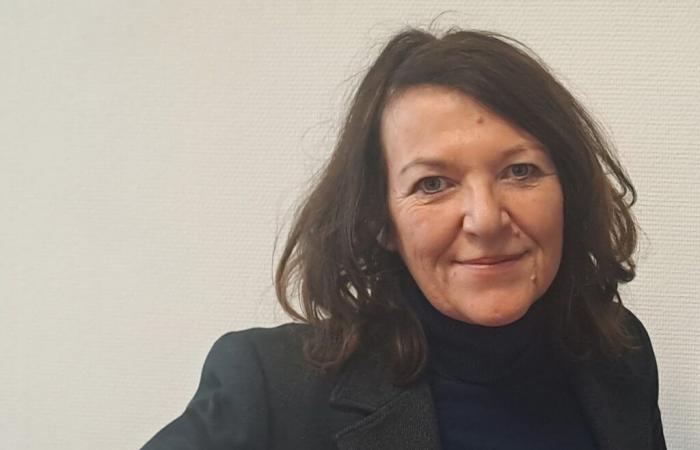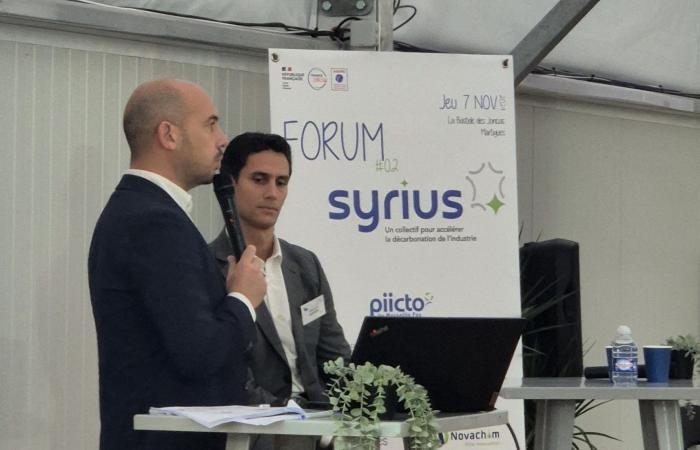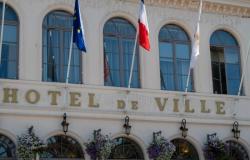Selected in April 2023 by Ademe as future “ Low carbon industrial zone » (Zibac) following a call for projects « France 2030», the industrial-port zone of Fos-sur-Mer (Bouches-du-Rhône) sees its future a little better outlinedafter the work carried out over the past 18 months by around fifty Provençal industrialists and institutions involved in “Syrius” (South Industrial Regenerative Synergies).
Coordinated by the Piicto association (Caban-Tonkin industrial and innovation platform,see box) and its partners Capenergies, Novachim, Port of Marseille-Fos, Métropole Aix-Marseille Provence and Région Provence-Alpes-Côte d’Azur, this program which also concerns Lavera petrochemical centers in Martigues and Berre-l’Etang as well as the Gardanne-Meyreuil basinaimed to launch around thirty studies in two years to define ways to reduce by at least 80 % (compared to 2019) the approximately 18 million tonnes of CO2 emitted by industries in the metropolitan area.
« 85 % of studies engineering and feasibility studies have already been launched and 7 million euros over the 8 million euros budgeted over 2023-2024 to carry them out have been committed », Explains Nicolas Mat, general secretary of Piicto.
Of the envelope, manufacturers financed half, Ademe the other half. “ We have even gotten ahead of our colleagues from Zibac in Dunkirk (North) to define our decarbonization trajectories», adds Corinne Ramombordes, president of Piicto and director of the sites of Solamat-Merex from Fos-sur-Mer and Rognac.
© J.-C. Barla – For Corinne Ramombordes, president of Piicto, many projects remain to be launched to give hope of achieving the most ambitious prospects.
The themes concerned the modalities of a new energy mix around a « low carbon energy hub » (electrification, hydrogen, gas decarbonization, etc.), the capture, storage and valorization of CO2 (in its Anglo-Saxon acronym, CCUS), the potential of the circular economy (pooling of materials and energies, industrial co-products …), storage and transport networks, the reduction of logistics flows or even the skills or innovations that the decarbonized economy will require to strengthen the attractiveness of the area and its industrial sovereignty…
« We can already see, on certain axes, what objectives can be achieved and the key technologies to achieve this », Continues Nicolas Mat, aware that all the avenues studied will take more or less time to be realized, given the persistent uncertainties about certain solutions or resources, or may even be abandoned.
“It’s the 1re times that manufacturers in competitive sectors agree towork collectively on engineering studies. Everyone played their role to evaluate the different possibilities for moving faster towards decarbonization, establishing more or less priority paths… It was essential to show that even before the arrival of new projects, the existing industry is involved in its transformation », insists Corinne Ramombordes.
In total, more than 200 actions were modeled, in dynamic mode, with industrialists in the basin, through direct interviews and studies. 75 % of projects involve shared infrastructure (hydrogen, CO2 storage, steam, etc.), at the risk of not achieving the objectives. There will obviously be multiple solutions for reducing Greenhouse Gases (GHG) to build « a more sustainable and resilient economy »…
According to Nicolas Mat, secretary general of PIICTO, at the microphone, industrialists have invested in several studies simultaneously. The sharing of work explains the rapid progress (Photo M.Asari).
Positive or negative scenarios always possible
This collective intelligence work also made it possible to determine four scenarios (trend, degraded central, central and ambitious), from more pessimistic to more positive by 2050depending on whether or not the projects launched or in the pipeline of current factories come to fruition (ArcelorMittal, LyondellBasell, TotalEnergies/Engie, Elengy, Marcegaglia, etc.), the implementation (or not) of new units announced (Carbon, H2V, GravitHy, etc.). ), the completion (or not) with RTE of the new 400 kV high voltage line…
And their consequences vary significantly: on the least favorable trend which integrates de facto decarbonization through possible site closures, Provençal industry would lose 4 000 to 5 000 jobswhileshe would win more than 5 000 directs in the most ambitious projection. Judge the scenario with a picture « central » et « ambitious » as ” desirable » because they contain a economic expansion and not partial deindustrialization. But all the reviews taken into account by manufacturers suggest that to date, everything remains possible, with ongoing consultations on projects not yet guaranteeing an effective investment decision.
Encourage the bonus for good students
For Corinne Ramombordes, removing uncertainties will involveemphasize the launch of demonstrators on industrial sites technologies, pilot units, etc. and to share feedback, while interfacing with other collective territorial approaches aimed at promoting the reindustrialization of the territory (Fos-Berre territorial industry laboratory to define a vision for 2040Creates possibilities with a hundred industrialists…). It will also be necessary to draw for the population how all these efforts will improve the living environmentthe air quality, the environment… It’s about acceptabilityor even “desirability” projects.
« We all have pedagogy to do to build the coherent, solid and inspiring story of this reduction in greenhouse gases“, Nicolas Matt will admit.
« Decarbonization will accelerate the reduction of many other pollutants », adds its president.
State, local authorities or Europe will be called upon to take their responsibilities, with measures of grantsd’tax advantagesof border protection and of « adapted regulations »to show more clearly the interest in investing and earning a return on investment. “ Good students will need to be rewarded »,slips Corinne Ramombordes. But also in terms of making available landd’mobility infrastructureof accommodationof formation…
Shifting gears
« Decisions must be made now to avoid risks, especially as we can clearly see the weakening of French industry at the moment. We needa strategic vision within a clear and effective action framework », slip the two managers, open to the idea of a Operation of national interest (ISO). The actors of Syrius say they are ready, for their part, in view of the phase 2 of the Zibac specifications that Ademe must define with a view to starting in 2025to further deepen their work, to initiate new studies (around fifteen project sheets have already been established), to prefigure the concrete impacts of certain investments to enlighten their steering committees scattered throughout the world and encourage them to succeed in being to the 2050 meeting.
« And several manufacturers collectively agree on the same interest to invest, oWe can hope that it weighs favorably on their thoughts », thinks Corinne Ramombordes who dares to believe in the potential realization of the ambitious scenario, even if it shifts in time…
The deployment of decarbonized hydrogen networks, the implementation of technologies and a value chain on CCUS solutions, the pooling of infrastructure or resources (energy, heat, water, waste, etc.) or the strengthening of partnerships public-private are displayed as key axes of this phase 2. “ The implementation of the projects will require massive investments to transform the Provence-Alpes-Côte d’Azur region into a low-carbon industry model », already alerts Piicto.
Piicto, an association created ten years ago
Piicto (Caban-Tonkin industrial and innovation platform) is an association, created in September 2014, which brings together industrialists and different stakeholders (port authority, private developers, communities, consular chambers, etc.) in order to lead and implement a dynamics of industrial and territorial ecology within the industrial-port zone of Marseille-Fos (inter-industrial synergies, circular economy, decarbonization and competitiveness of industrial activities, attractiveness of the zone, innovation and technological risks).







